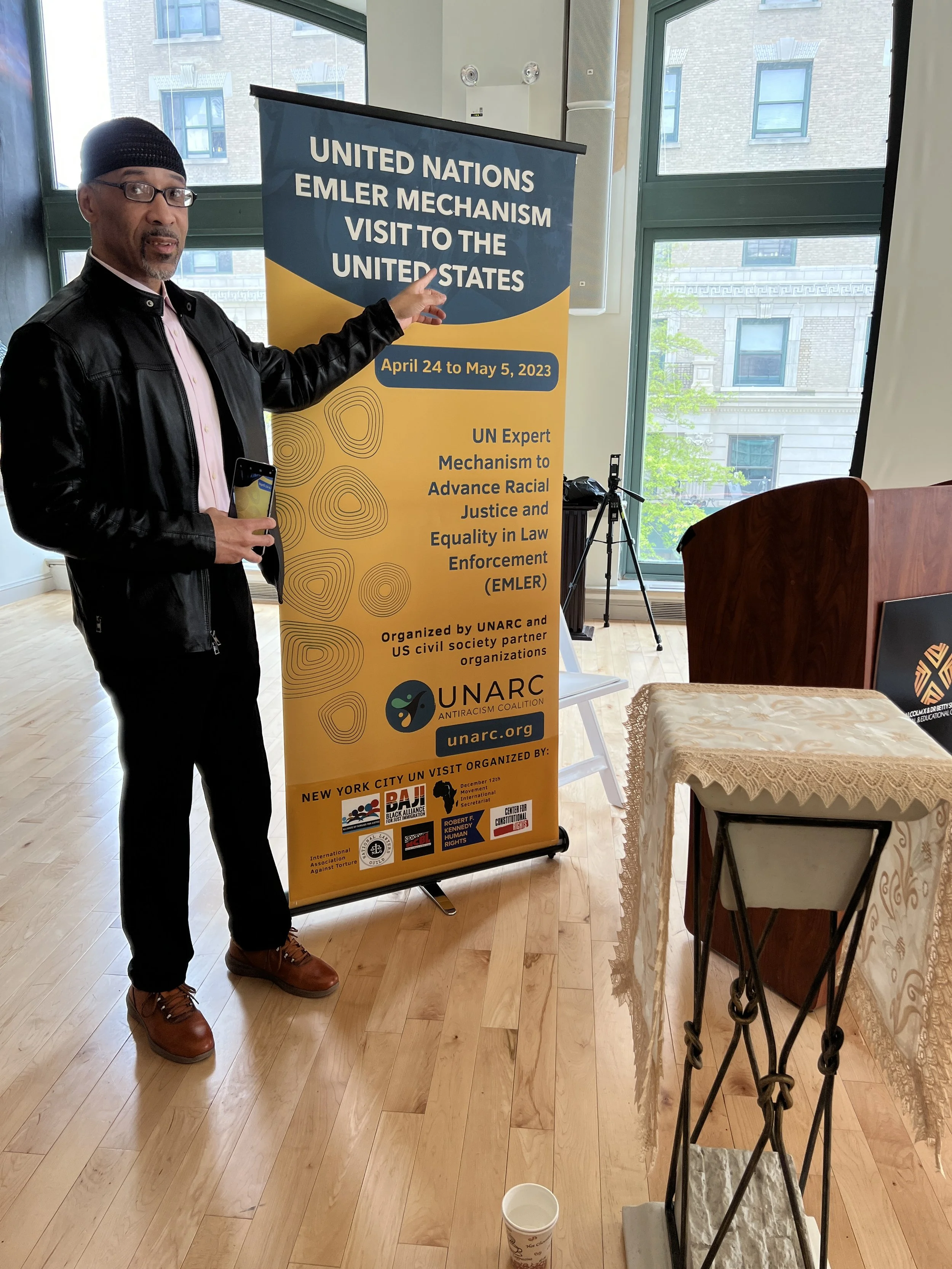
UN Expert Mechanism to Advance Racial Justice and Equality in Law Enforcement (UN EMLER) Report
After reviewing our submission, and hearing from Jamel Bellamy who testified in New York, UN EMLER issued a report acknowledging the practise of “death by incarceration,” and issued recommendations to the United States, that “All prison sentences in the United States should include parole eligibility within a reasonable number of years, and always below life expectancy. Federal and state executive branches should keep exercising clemency powers in favour of persons already serving sentences beyond life expectancy, especially benefiting children and persons who committed crimes when they were children and older persons.”:
F. Prison sentences beyond life expectancy
1. The Mechanism was deeply alarmed by information on prison sentencing policies and practices commonly referred to as “death by incarceration” sentences, such as “life without parole”, “life with parole” or in general any sentence that exceeds life expectancy (“virtual life”), particularly because of the disparate impact on people of African descent and other racial and ethnic minorities and because of the use of these sentences against children.
2. Data received reveals that 15% of the total prison population nationwide in 2020 (203,865 incarcerated individuals) were serving life or virtual life sentences. People of African descent make up 46% of the prison population serving life sentences nationwide even though they comprise only 12% of the general population. Women represent the 3% of the population serving life sentences, but the number raised 32% faster compared to men over the past decade. One in every 15 women in prisons was serving a life sentence in 2021, with one third being ineligible for parole.
Further, information states that the United States is the only country in the world that sentences children to life without parole, an option contemplated in both federal and State laws. Data also indicates that 62% of juveniles serving life without parole are of African descent.
2. Evidence suggests that “death by incarceration” sentences are increasing overtime, while the use of parole and clemency is declining. This results in numerous individuals, particularly of African descent or other racial and ethnic minorities, condemned to death in prison.
3. The Mechanism would like to emphasize that disproportionate, excessive and discriminatory sentencing beyond life expectancy is a cruel, inhuman and degrading treatment, in violation of international human rights standards protecting life, liberty and against torture. All prison sentences in the United States should include parole eligibility within a reasonable number of years, and always below life expectancy. Federal and state executive branches should keep exercising clemency powers in favour of persons already serving sentences beyond life expectancy, especially benefiting children and persons who committed crimes when they were children and older persons.